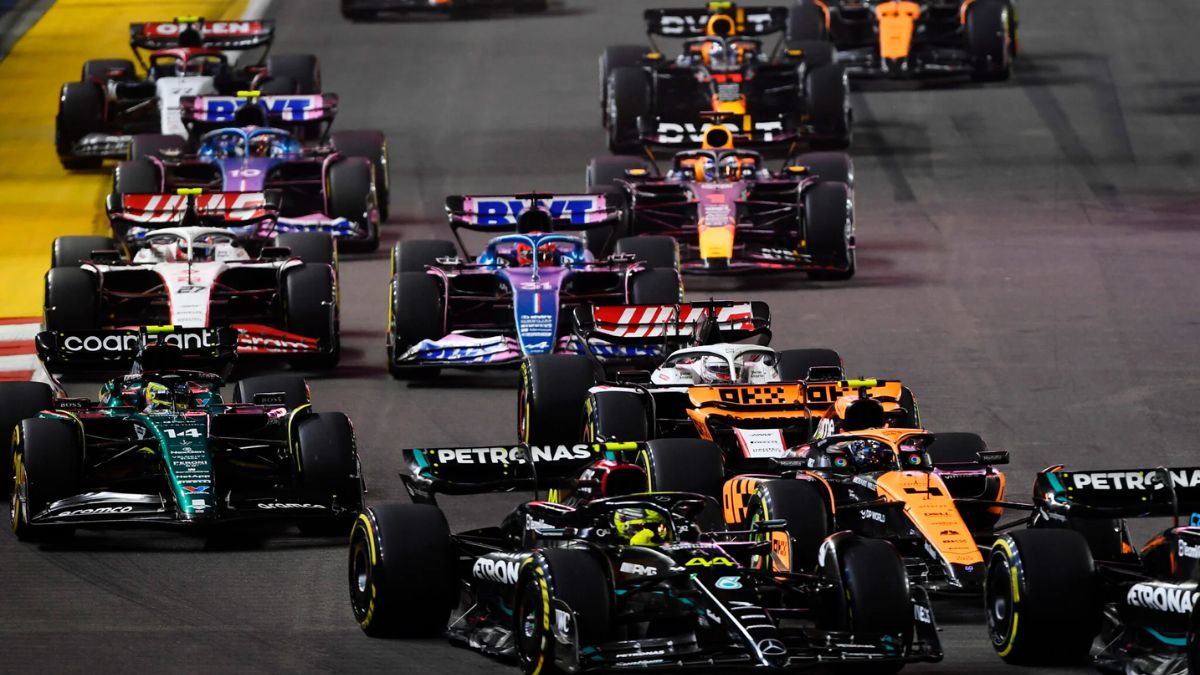- By Divanshi Sharma
- Wed, 06 Mar 2024 03:51 PM (IST)
- Source:JND
Formula 1, the pinnacle of motorsport, has always been a captivating spectacle for racing enthusiasts worldwide. In recent years, India has emerged as a significant player in the global sports landscape, with a growing interest in Formula 1. As the country looks ahead to its future in the sport, there is a palpable sense of excitement and anticipation about what lies ahead. Talking about this, Jagran English spoke to Lee Keshav, a prominent figure in the Indian motorsport community, to discuss India's Vision for the Future of Formula 1.
Question 1. Starting with the inception of Formula 1 in India. How did it all begin, and what were the key milestones along the way?
Lee Keshav: India's involvement in Formula 1 began with the conception of the ex-Force India F1 team, followed soon by the inaugural Indian Grand Prix held at the Buddh International Circuit in Greater Noida in 2011. The event marked a historic moment for Indian motorsport, showcasing the country's potential as a host for top-tier sporting events. The race received widespread acclaim for its state-of-the-art facilities and enthusiastic fan base, firmly establishing India as a viable destination for Formula 1.
Question 2: What are some of the recent developments that indicate India's growing commitment to Formula 1?
Lee Keshav: In recent years, there have been promising developments indicating India's growing commitment to Formula 1. One significant milestone is the recent participation of Indian drivers in the Formula 2 championship, the final stepping stone towards reaching the pinnacle of motorsport, Formula 1. Moreover, the emergence of talented young drivers from India, coupled with increasing investments in motorsport infrastructure, has laid the groundwork for a potential resurgence of Formula 1 in the country. Efforts to revive the Indian Grand Prix have gained momentum, with discussions underway between government authorities, race promoters, and Formula 1 officials to explore the feasibility of bringing back the event. India's potential for the future of Formula 1 extends beyond hosting races to fostering a thriving motorsport culture that encourages participation at all levels. Initiatives such as grassroots racing programs, karting championships, and safe road driving initiatives aim to identify and nurture talent from a young age, providing them with the necessary support and resources to pursue careers in motorsport.
Question 3: How do you see India's potential in contributing to the future of Formula 1, particularly in terms of innovation and technology?
Lee Keshav: Furthermore, India's burgeoning automotive industry presents ample opportunities for collaboration and innovation within Formula 1. As the world shifts towards sustainable mobility solutions, there is a growing emphasis on developing sustainable fuels and hybrid technologies in motorsport. Indian manufacturers and tech companies are well-positioned to contribute to this transition, leveraging their expertise in hybrid and renewable energy.
Question 4: What are the key initiatives being undertaken to revive Formula 1 in India, and what can we expect in the future?
Lee Keshav: Looking ahead, India's re-entry into Formula 1 holds immense potential not only for the country's motorsport industry but also for the global racing community. With its rich cultural heritage, passionate fan base, and rapidly evolving infrastructure, India has much to offer to the world of Formula 1. As discussions continue and plans take shape, there is a sense of optimism and anticipation about what the future holds for Formula 1 in India. Whether it's the roar of engines at the iconic Buddh International Circuit or the potential new circuit in the state of Gujarat, the sight of Indian drivers competing on the world stage, one thing is certain – the road ahead for India in Formula 1 is full of promise and excitement.

